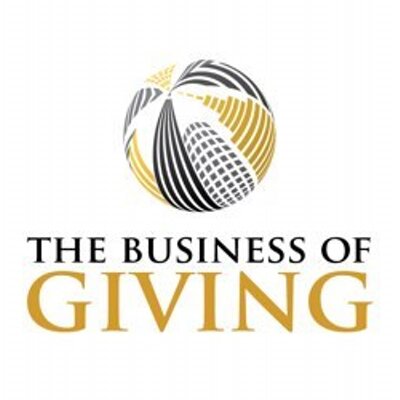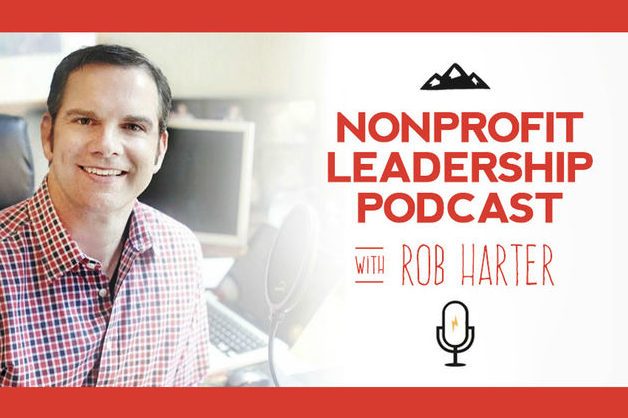Let’s be honest a newsletter from your local law firm doesn’t sound like it should be the top must-read on your list. But, GoFisch is different. It’s easy to read, interesting (or so I’ve been told), and a concise, helpful run down on topical news and my recent blog posts. Give GoFisch a read, subscribe, and share it with your friends & colleagues. (If you missed the previous edition of GoFisch, you can read it here.)
What’s It All For?
In Hamilton: An American Musical, a perplexed Alexander Hamilton asks Aaron Burr, “What was it all for?” Regarding trusts, we know that all the work is for the beneficiary.
Classic Definition of “Trust” and “Beneficiary”
A trust is created when a property owner transfers property to a person with the intent that the recipient hold the property for the benefit of someone else. There are three parties to a trust: (1) the settlor (also called donor or grantor); (2) the trustee; and (3) the beneficiary. Every trust must have at least one beneficiary – a person for whose benefit the trust property is being held and who therefore has legal rights to enforce the trust.
Beneficiaries Must Be Sufficiently Definite

The beneficiaries must be described with sufficient detail that their identities can be determined. If the description of the beneficiaries is too vague or indefinite, then the trust will fail and the property will be returned to either the settlor or the settlor’s estate.
Let’s take two simple examples.
- Alan establishes a trust for the benefit of his then-living children. The beneficiaries are sufficiently definite.
- Sara establishes a trust for the benefit of all her friends. The beneficiaries are insufficiently definite.
Easy, right?
Exception: Charitable Trusts
There is one narrow, but critically important exception to the rule beneficiaries of a trust must be sufficiently definite. Charitable trusts–trusts established to fulfill a recognized charitable purpose – can be for the benefit of an indefinite group. For example, a charitable trust set up to provide scholarships to disadvantaged youth will be held valid.
Multiple Beneficiaries: Concurrent Interests or Successive Interests
Trusts can have more than one beneficiary and they commonly do. In cases of multiple beneficiaries, the beneficiaries may hold concurrent interests or successive interests. An example of concurrent interests is a group of beneficiaries identified as grandchildren of the settlor, who all receive distributions after their grandparents’ deaths. An example of successive interests is a trust in which one beneficiary has an interest for a term of years, and the other beneficiary holds a future interest, to become possessory only after the present interest terminates.

Special Remedies for Beneficiaries
There are several remedies available to an aggrieved beneficiary in the event of a breach of trust by a trustee. Such remedies include claims for damages, injunction to restrain a breach, tracing and/or recovery of trust property, among others. A beneficiary may be able to recoup damages, perhaps even from the trustee’s personal assets. If the trustee wrongfully disposes of trust property, the beneficiaries may be able to reclaim the property from a third party. Again, legal remedies for a breach of trust by a trustee are broad.
Let’s Talk More About Trust Beneficiaries
Interested in establishing a trust or having difficulty deciding on beneficiaries? Don’t hesitate to reach out; email me at gordon@gordonfischerlawfirm.com. I offer a free one-hour consultation to everyone, without any obligation. I’d be happy to talk to you any time.
Similar to the bad joke, “When is a door not a door? When it’s a jar!” Ha! Similarly, but not as punny, we might well say, “When is a trust not a trust? When it’s a Totten trust!”
A Totten trust, also known as a savings account trust or a poor man’s will, is not a trust at all. Rather a Totten trust is simply a name given to a type of savings account. In this savings account, the depositor opens an account with her name designated “as trustee for” someone else. In a Totten trust, there is nothing stopping the depositor from withdrawing the funds for her own use, at any time during her life. Upon her death, any funds remaining are distributed to the so-called “beneficiary.”
Despite the confusing terms, no trust exists. The so-called “trustee” is not obligated to hold the property for the benefit of anyone, including the so-called beneficiary. Rather, the depositor can withdraw funds for her own use at any time during her life.
A Bit of History
The name—Totten trust—came from a New York case where their legality was tested, called In re Totten. The court ruled it was fine for one to open a banking account as a trustee for another person, who had not right to the funds until the account owner passed away. Previously courts had not allowed this under the objection that the situation could take the place of a will, which required more formality than this bank account scenario. To legally maneuver around this the Totten court called the account a “tentative trust” in which the account owner acts as trustee of the funds that will someday go to the trust’s beneficiary. After this decision other state legislatures authorized and regulated such accounts. Often they were referred to payable-on-death accounts in lieu of the term Totten trusts, but regardless of name, the result is the same.
Iowa & Totten Trusts
In states like Iowa, where Totten trusts are recognized, the proceeds for the account pass to the named beneficiary outside of the probate process. The treatment is just like a POD (“payable on death”) account or TOD (“transfer on death”) account.
Iowa recognizes Totten trusts generally, but specifically excludes them from the Iowa Trust Code. Iowa law describes legal trusts as follows:
‘Trust’ means an express trust, charitable or noncharitable, with additions thereto, wherever and however created, including a trust created or determined by a judgment or decree under which the trust is to be administered in the manner of an express trust. ‘Trust’ does not include [a] Totten trust account. Iowa Code 633A.1102(18)(a) (emphasis added).
When is a trust not a trust? Hopefully, thanks to this blog post, you now know that Totten trusts are not true trusts. I’ve written quite a bit on real trusts and would be happy to talk with you about what sort of trust may be right for you. Give me a call at or shoot me an email.
Podcasts undoubtedly are a component of the upper echelons of the Interwebs—one of the aspects of digital content that actually help us be more knowledgeable, interesting people. Unlike cute animal videos on Reddit, the time suck that is Twitter scrolling, or the easily enabled spending sprees on Amazon Prime, podcasts open our eyes to stories that capture our minds. They give us tidbits to discuss with our dinner companions, can help us forget we’re cleaning the house, and make driving through the long swaths of nothing-but-cornfields in the Midwest that much more manageable. Podcasts give us a chance to enrich and enhance our personal and professional lives in an accessible way.
A major sector of my practice is dedicated to working with nonprofits and the donors who support them. Be it writing and filing organizing documents, offering valuable training for nonprofit boards and staff members, handling compliance issues, or coordinating complex charitable gifts, I love working with Iowa nonprofits. In order to do my best work in the intersection between nonprofit operations and law, I try to stay on top of news and best practices in the industry. One way to do that? Podcasts—they’re like free professional development. If you work for a nonprofit, serve on a board, or are simply an interested donor, here are four top-notch podcasts related to nonprofits.
Business of Giving
Hosted by Denver Frederick, who can boast 40 years of valuable experience “in the world of philanthropy and social good,” the Business of Giving explores topics and solutions to complicated social issues. In the past, the program has explored topics such as affordable housing, education, access to clean water, and global poverty. Based out of New York City, a new episode is released on Sundays, 6-7 p.m. The best place to listen is on Soundcloud. Recent episodes of the show (of the over 300 tracks available to listen to) include interviews with Dan Cardinali, President and CEO of The Independent Sector, Megan O’Neil, Staff Writer for The Chronicle of Philanthropy, and Adarsh Alphons, Founder and Executive Director of ProjectArt.
Nonprofit Leadership Podcast: Making Your World Better
This is a great listen for nonprofit leaders (like the name of the show says) as each episode covers opportunities, trends, and problems applicable to leadership in the sector. First hand advice from other leaders can be invaluable in helping others apply the same practices in their own respective organizations. Dr. Rob Harter hosts the show and brings with him more than two decades of work in “leading and building non-profit organizations, leveraging resources, communication and personal development.” The episodes (available in iTunes) give advice and tell stories to help you ultimately be more efficient and effective in your leadership. I liked one of the recent episodes from June that featured the “Fundraising Coach,” AKA Marc A. Pitman, on how to lead with less stress.
Tiny Spark
Not only does Tiny Spark have a cool owl logo, it also has pretty fantastic episodes that dig in deep on “philanthropy, nonprofits and international aid.” Founder and managing editor, Amy Costello, is a rock star reporter who has an impressive reporting resume including PBS, BBC, and NPR; she was nominated for an Emmy Award on her reporting on Dafur, Sudan. Subscribe on iTunes for episodes such as the recent ones on “The Rise of Philanthropy’s ‘Shadow Giving System’,” and “Why Big Philanthropy Needs Scrutiny Not Gratitude.”
Nonprofit Ally
The Nonprofit Ally podcast wraps essential topics like “social media strategies, capacity building, board of director development, fundraising and budgeting,” into conversations with nonprofit leaders. Episodes are under an hour and after tangible advice you can with you into your nonprofit role, such as how to have better board meetings with Roberts Rules, how to fundraise over email, and tips of the trade from a professional grant writer. The podcast is hosted by Steve Vick of the podcast’s associated website, nonprofitally.com. You can listen on the website or subscribe on Android and Apple platforms.
What nonprofit-related podcasts would you add to my listening library? Share below in the comments. (On a related note, I also wrote about how the podcast S-Town made a strong case for the need and power of estate planning.)
If you want to discuss the issues your nonprofit is facing, don’t hesitate to reach out via email or phone, at 515-371-6077. I’m more than happy to offer a free consultation.
Capital assets include stocks, bonds, real estate, art, and antiques. The amount a donor can claim as an income tax charitable deduction depends on whether the property is considered short-term or long-term capital gain property. The long-term holding period is a 12 months plus a day. Short term property is that which is held for 12 months or less.

Long-Term Capital Gain Property
For gifts of long-term capital gain property, the donor can generally claim a federal income tax charitable deduction for the fair market value of the property. To take a simple example, assume Jill Donor has held publicly traded stock for more than one year. The stock is valued at $10,000, which Donor bought for $1,000, i.e., the stock has a cost basis of $1,000. If Donor makes a gift of this stock to a qualified charitable organization, she can claim a deduction for the full fair market value of the stock, $10,000.
Short-Term Capital Gain Property
For short-term capital gain property, the value of the federal income tax charitable deduction is limited to the cost basis. Another example: assume Jill Donor held publicly traded stock for 364 days. The stock is valued at $10,000, which has a cost basis of $1,000. If Donor makes a gift of this stock to a qualified charitable organization, she can claim a deduction for only the cost basis of the stock, $1,000.
As you can see, it’s generally advisable to delay a gift of appreciated property until the long-term holding period can be met.
Ask More Questions.
This is a solid overview, but you may have more questions! Don’t hesitate to reach Gordon by phone at 515-371-6077 or email at gordon@gordonfischerlawfirm.com.
To stay in the know with the latest Gordon Fischer Law Firm news and blog posts, subscribe to the monthly newsletter, GoFisch!
Although well-meaning, my husband and I are perpetually running late. We are late for everything—missing the first two minutes of a movie, showing up 30 seconds too late to see the balloon drop at a New Year’s Eve party, showing up to a physical therapy session five minutes late… Sound familiar?
When it came to finances, my husband and I managed to keep up on bills and our credit scores were decent, but we were always just doing the minimum to keep our heads above water. Saving enough funds for a couple trips, enough to pay the bills, and maybe throw a couple bucks into long term savings.
There is a game changer in this equation: our daughter.

Photo by Aditya Romansa on Unsplash
She has been the single greatest catalyst in our lives and has forced us to address the facts about sound financials and estate planning. We were especially concerned about the potential for an accident involving both me and my husband.
We decided to create an estate plan with Gordon because we needed reassurance that should anything happen to us, she would be cared for with as minimal amount of legal hiccups as possible.
Gordon set us up with a complete estate plan. It wasn’t nearly as complicated (nor as expensive) as we would have thought.
My husband and I took special care selecting her guardians, should something happen to us, as well as setting up a trust for her to gain access to assets after her 18th birthday.
We plan to revisit the estate plan annually, just to make sure that everything is current. In addition to her college fund, it is our way of taking her financial security seriously and planning for the unexpected. Maybe she’ll forgive us for the chronic lateness she inherited with the knowledge that she has also inherited a strong financial support system in place to help her, no matter what.
Note from Gordon: If you’re like this client (who wished to remain anonymous), children and grandchildren can mean you’ll pursue legal and financial actions you never thought of before to ensure piece of mind that they’ll be taken care of if something happens to you. There’s no harm in giving me a call or shooting me an email to at least talk about what you may need in terms of an individualized estate plan. I look forward to working with you!










